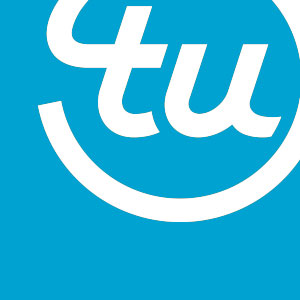Would you Download a Car?
We all remember those anti-piracy ads from the early 2000s asking us if we would treat cars as disposable items, the same way as digital movies and music. Back then, it seemed a ludicrous comparison, but today it’s become a relevant question again.
Why wouldn’t you download a car? If you could customise designs for your next vehicle online and take it to your local dealer to manufacture on site, why wouldn’t you? If buying a car was as convenient, cheap and fast as purchasing an album from iTunes, why would anyone choose the old method of purchase?
This isn’t sci-fi speculation. Auto companies have already been using 3D printing for parts manufacturing for a while now, and this year saw the first 3D printed, full-scale concept car. AI is getting sophisticated enough that different product designs can be rolled out to scale.
Meanwhile, sensors are getting smaller and cheaper. Wearables are giving way to embeddables and ingestibles, allowing for practically any physical object to be transformed into a platform. Every business has the potential to be a technology provider, no matter what they sell.
As technologies like 3D printing, just-in-time manufacturing and AI-driven automation become commonplace, affordable access to even complex products is becoming a lot simpler. Why go to the supermarket when it’s easier to have the exact groceries you need pre-delivered and waiting for you when you get home? Why order a takeaway when you can print a pizza with a swipe? Why shop at a clothing retailer when you can customise a full wardrobe on your phone and have it waiting on your doorstep the next day?
It’s an exciting time to be a consumer, but what if you’re a business whose revenue model relies on product sales? What implications will being able to access physical objects as easily as you do digital media have on consumer goods? If you thought the threat of commoditisation was bad, imagine what will happen when people have the ability to manufacture almost anything they want locally. Made in China? Try Made in Your Own Backyard.
If the fates of CDs, video stores and print media are anything to go by, it’s going to radically change the way society attaches value on consumer goods. Are we looking at the death of the product?
Lease is more
Forget new and improved recipes or unique features. In the easy access economy, it’s not the product itself that matters or even the cost. Rather, it’s the simplicity with which we can access it, how easily it fits into our lives, and what it ultimately enables us to do.
Products as we know them - manufactured physical assets whose ownership is transferred through a one-time transaction - are making less sense for consumers in a world of shortened product lifecycles, where sharing is more convenient than owning, and almost anything can be cheaply manufactured and customised.
Some even go so far as to predict everything we now consider a product will eventually become a service. It’s a plausible scenario when you consider the global shifts in ownership and consumer behaviours. The world of Everything-as-a-Service – appliances, clothing, groceries and much more – is a lot closer than we think.
Service- and subscription models have been the norm in the B2B and enterprise technology spaces for a long time now, but they’re relatively new in the retail and FMCG industries. We are now starting to see traditional product retailers make the transition.
Take Ikea, one of the most dominant furniture brands in the world that nevertheless suffered a fall in profits in 2018. It’s investigating the idea of a subscription model in which customers are able to lease furniture for a certain period of time.
Nespresso saw the writing on the wall years ago with its coffee pod revenue model, and has continued to build on this strategy in the face of competition from generics. In the UK, you can get a coffee machine for next to nothing when you sign up for its monthly subscription service. The machine is just the incentive - the real goal is to monetise the entire ecosystem of Nespresso products, services and delivery.
From product to profit
It doesn’t matter what your product is - eventually a competitor is going to find a way to disrupt the way consumers access or engage with it. And by then, it may already be too late. The key to surviving is to stop thinking in terms of product at all and consider the overall value of what you can offer customers. That means asking some tough questions.
First, I’d ask if your product would pass the Spotify test? If your customers could access a generic version of your product as easily as they could listen to music online, would they go for it? If your honest answer is no or even just a maybe, it’s time for some serious retooling of your revenue model before it becomes a serious possibility.
What value does your product hold relative to your customers’ needs? Is there a way to increase the value by increasing the service component or the function itself? Can you give a compelling reason for customers to keep engaging with your brand through that product, whether through add-ons, end-of-lifecycle exchange programmes or loyalty rewards? What platforms are you absent from could provide easier and more convenient access to your product?
Traditional product models, with their emphasis on one-and-done asset exchanges and sales volumes, aren’t designed to foster the communication needed to answer these questions. Putting in place the systems and transactional relationships to be able to understand what your customers value is the only way to start moving forward.
Finally, don’t just keep an eye on trends within your own industry. Look at use cases from service industries, software companies, and platform-centric businesses like Apple, Uber and Microsoft. The good news is that while technologies like 3D printing and machine learning might be new, the strategies for making the transition from product to service-based aren’t. Many organisations have successfully made the transition to full service or hybrid product-service models.
You could keep doing what you’re doing, assuming that it won’t happen to your industry. Just don’t bet your CD collection on it.
Contact Us
We're sorry, your request failed. Please try again in a little while.
This site is protected by reCAPTCHA and the Google Privacy Policy and Terms of Service apply.



